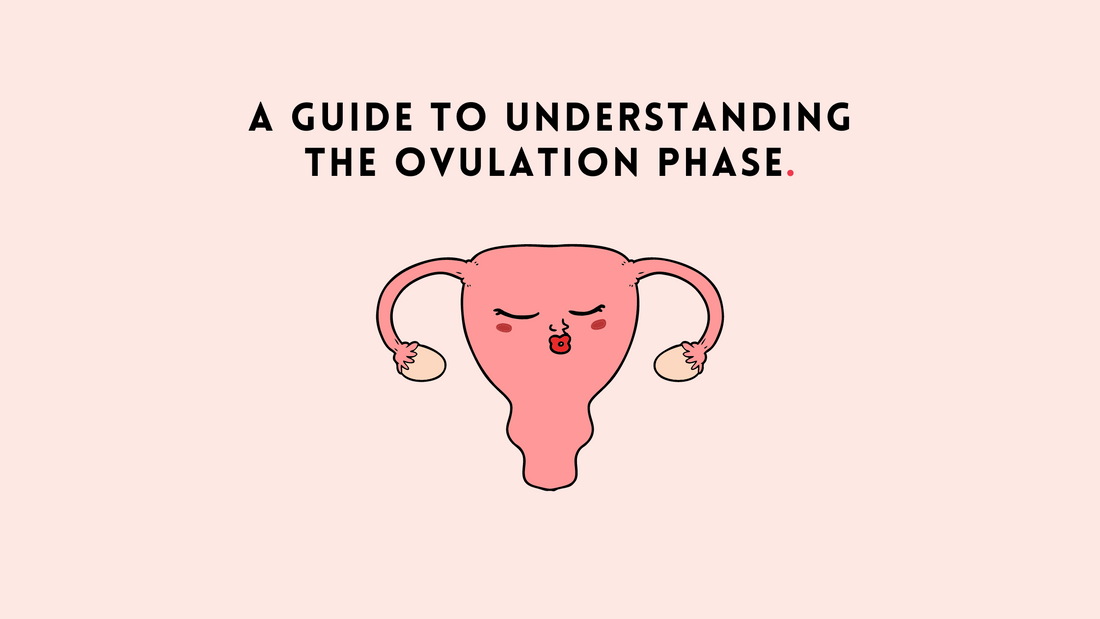Understanding the ovulation phase of your menstrual cycle can empower you to make informed decisions about your reproductive health, whether you’re trying to conceive or simply want to know more about your body. This guide explores the ovulation phase in detail, including its signs, symptoms, and how to track it effectively.
What is the Ovulation Phase?
The ovulation phase occurs approximately midway through your menstrual cycle, typically around day 14 in a 28-day cycle. During this time, hormonal changes trigger the release of a mature egg from one of the ovaries. The egg then travels down the fallopian tube, where it may be fertilized by sperm. Ovulation marks the most fertile period of the cycle, making it crucial for those trying to conceive or avoid pregnancy.
Hormonal Changes:
- Luteinizing Hormone Surge: A significant rise in luteinizing hormone (LH) triggers ovulation, causing the mature follicle to release an egg.
- Estrogen Peak: Estrogen levels peak just before ovulation, enhancing fertility by increasing cervical mucus production and promoting sperm survival.
Signs and Symptoms of Ovulation:
Several physical and hormonal changes occur during ovulation, making it possible to identify when you are ovulating. Common signs and symptoms include:
- Changes in Cervical Mucus: Around ovulation, cervical mucus becomes clearer, stretchier, and more slippery, resembling raw egg whites. This change helps sperm travel more easily through the cervix and into the uterus.
- Basal Body Temperature (BBT): Your BBT slightly increases after ovulation due to the rise in progesterone. Tracking your BBT over several cycles can help you identify the pattern of your ovulation.
- Mittelschmerz: Some women experience mild pelvic pain or discomfort on one side of the lower abdomen during ovulation. This is known as mittelschmerz and can last from a few minutes to a few hours.
- Increased Libido: Many women report a heightened sex drive around the time of ovulation, influenced by hormonal changes.
- Breast Tenderness: Hormonal fluctuations during ovulation can cause breast tenderness or sensitivity.
- Heightened Senses: Some women experience a heightened sense of smell, taste, or vision around ovulation.
How to Track Ovulation:
Tracking ovulation can be done through various methods, each with its own advantages:
- Ovulation Predictor Kits (OPKs): These kits detect the surge in LH in your urine, indicating that ovulation is likely to occur within the next 12-36 hours. OPKs are easy to use and can be very accurate.
- Basal Body Temperature (BBT) Charting: By taking your temperature every morning before getting out of bed, you can identify a slight rise in BBT that occurs after ovulation. Use a specialized BBT thermometer for accuracy.
- Cervical Mucus Monitoring: Observing changes in your cervical mucus can provide clues about when you are most fertile. Track the consistency, color, and amount of mucus daily.
- Calendar Method: By tracking your menstrual cycle over several months, you can estimate your ovulation day based on the average length of your cycle. This method is less precise but can be useful for those with regular cycles.
- Apps and Technology: There are numerous apps available that can help you track your menstrual cycle, symptoms, and fertility signs. These apps often provide predictions and reminders based on the data you input.
Importance of Understanding Ovulation:
Understanding your ovulation phase is vital for several reasons:
- Family Planning: Knowing when you ovulate can help you time intercourse if you are trying to conceive or avoid pregnancy.
- Cycle Regularity: Tracking ovulation can help identify irregularities in your menstrual cycle, which could be indicative of underlying health issues.
- Hormonal Health: Awareness of your ovulation can provide insights into your hormonal health and overall well-being.
- Empowerment: Understanding your body's natural rhythms can enhance your confidence and ability to make informed health decisions.
Factors Affecting Ovulation:
Several factors can influence the timing and regularity of ovulation:
- Stress: High stress levels can disrupt hormonal balance and delay or prevent ovulation. Chronic stress can interfere with the body's ability to produce and regulate hormones essential for ovulation.
- Diet and Nutrition: Poor nutrition and extreme weight changes can affect ovulation. Maintaining a balanced diet rich in essential vitamins and minerals supports hormonal health. Deficiencies in nutrients like iron, folate, and vitamin D can impact ovulation.
- Exercise: Excessive or insufficient exercise can impact ovulation. Aim for moderate, regular physical activity. Intense physical activity can lead to hormonal imbalances, while too little activity can contribute to weight gain and hormonal disruptions.
- Medical Conditions: Conditions like Polycystic Ovary Syndrome (PCOS), thyroid disorders, and other hormonal imbalances can affect ovulation. Managing these conditions with medical guidance can help regulate ovulation.
- Age: As women age, ovulation becomes less regular and less frequent, particularly after age 35. This is due to a natural decline in the number and quality of eggs available for fertilization.
How Ovulation Affects Emotional and Mental Health:
Mood Changes:
- Hormonal fluctuations during ovulation can lead to increased anxiety, irritability, or emotional sensitivity. The surge in estrogen and subsequent drop after ovulation can influence neurotransmitters in the brain, affecting mood and emotional stability.
Coping Strategies:
- Practice mindfulness techniques such as meditation or deep-breathing exercises to manage stress and anxiety. Engaging in regular physical activity, such as yoga or walking, can boost endorphins and improve mood. Ensure adequate sleep to support overall mental health and emotional well-being.
Ovulation and Lifestyle:
Sexual Activity:
- Ovulation can significantly affect libido and sexual desire, with many women experiencing heightened arousal. Understanding your ovulation cycle can help you plan intimate moments more effectively, enhancing your sexual health and relationship satisfaction.
Relationship Dynamics:
- Understanding ovulation can improve communication and intimacy in relationships. Sharing information about your cycle with your partner can foster mutual understanding and support, allowing you to better navigate mood changes, physical symptoms, and fertility planning.
Common Misconceptions About Ovulation:
- Myth: Ovulation always occurs on day 14.
- Fact: Ovulation timing can vary significantly among women and from cycle to cycle.
- Myth: You can only get pregnant on the day of ovulation.
- Fact: Sperm can survive in the female reproductive tract for up to five days, so intercourse before ovulation can also result in pregnancy.
When to Consult a Healthcare Provider:
Signs of Irregular Ovulation:
- Seek medical advice if you experience irregularities such as absent or extremely painful ovulation, unpredictable menstrual cycles, or symptoms of underlying health conditions like PCOS or thyroid disorders. Consistent cycles that are unusually short or long can also indicate hormonal imbalances.
Professional Guidance:
- Consulting healthcare professionals for personalized advice and treatment can provide valuable insights and solutions for ovulation-related concerns. They can perform diagnostic tests, offer treatments to regulate cycles, and provide guidance on family planning and fertility.
Understanding the ovulation phase of your menstrual cycle can provide valuable insights into your reproductive health and overall well-being. By recognizing the signs and symptoms of ovulation and learning how to track it effectively, you can make informed decisions about your body and health. Whether you're trying to conceive or simply want to better understand your cycle, knowledge of ovulation is a powerful tool.

